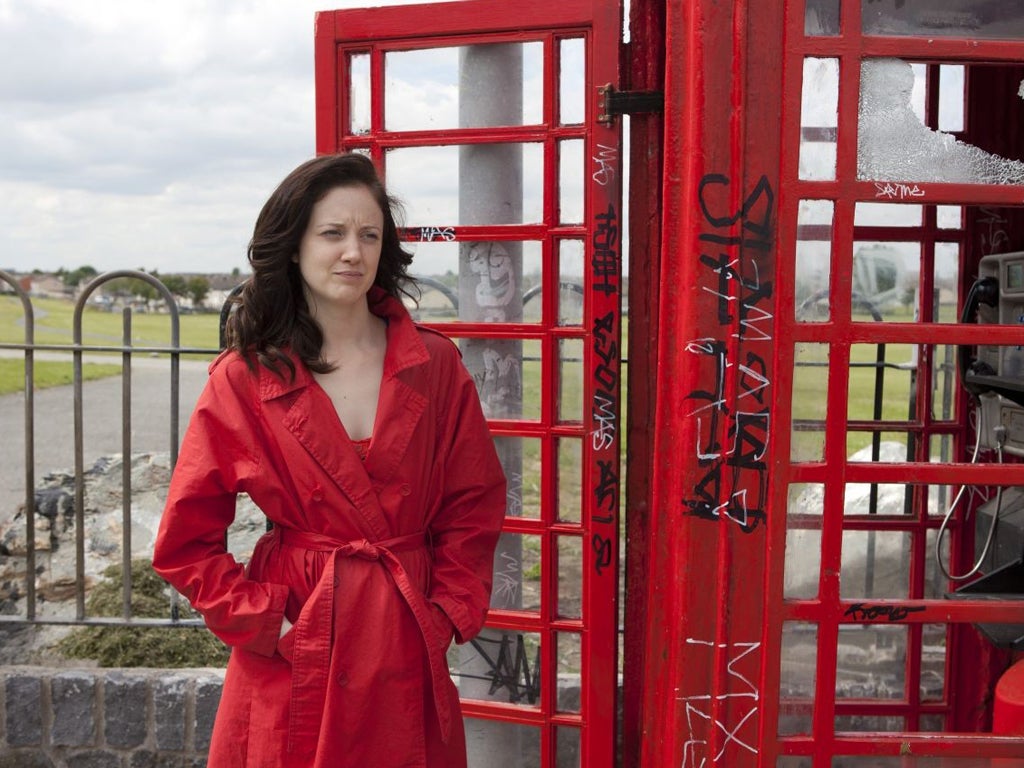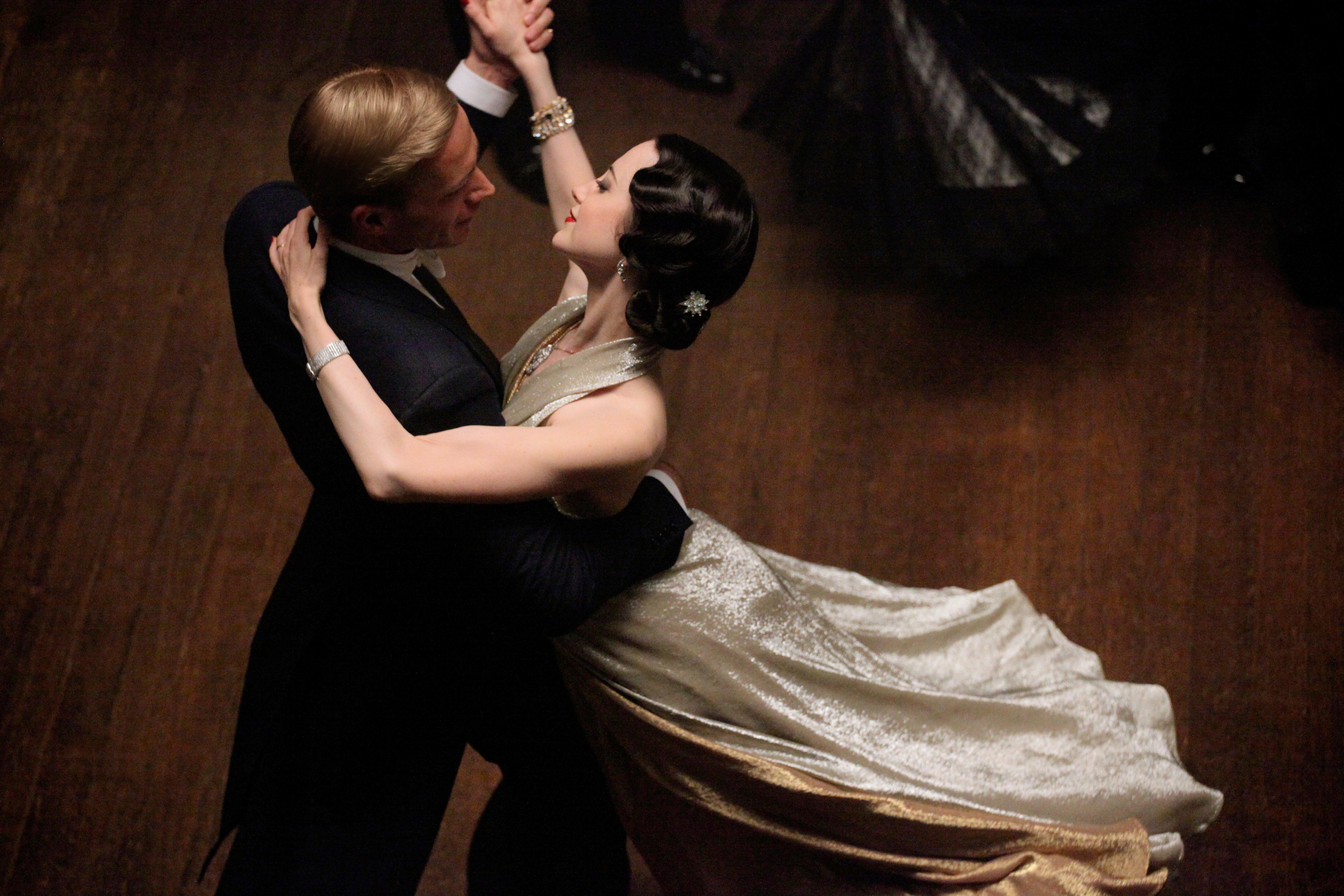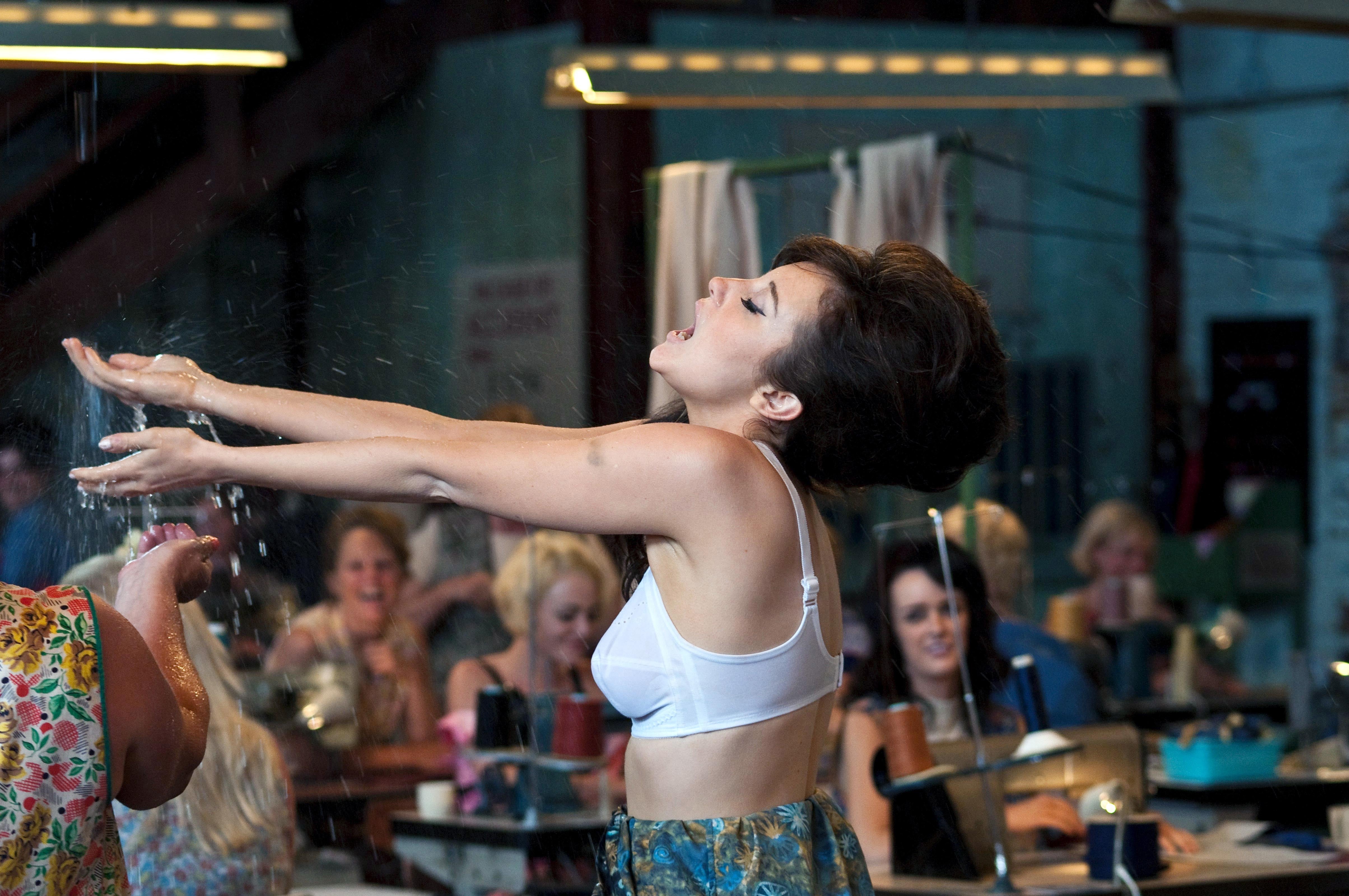Ignore the controversy – Andrea Riseborough deserves her Oscar nomination
Andrea Riseborough’s Oscar nomination for ‘To Leslie’ has been upheld after being mired in controversy. Why has one of the UK’s most daring actors been pilloried in the media because the Academy can’t get its house in order, writes Geoffrey Macnab

You can easily understand why Andrea Riseborough’s fellow actors have been so awestruck by her performance as the alcoholic mum in Michael Morris’s unsung, low-budget movie To Leslie and why so many of them voted for her to receive an Oscar nomination. What is harder to fathom is why Riseborough has subsequently been pilloried in the media for her Oscar campaign and threatened with having her nomination revoked.
No one treats Meryl Streep with this level of disrespect – and Riseborough is arguably as close as UK cinema comes to a film actor with Streep’s daring and versatility. The real mystery here isn’t how she gatecrashed this year’s Oscar race but that she isn’t more appreciated and better known.
It was confirmed today that the Oscar nomination still stands, in spite of the controversy which has threatened to engulf the movie in recent days. In To Leslie, Riseborough goes all-in. Her character is a Texan alcoholic single mum who has fallen on very hard times. A few years before, she won the lottery, but she drank all the money away. Nic Cage’s Oscar-winning turn as the alcoholic anti-hero, drinking himself to death in Leaving Las Vegas (1995), seems half-hearted by comparison.
Riseborough is an avowed admirer of the intense, naturalistic, semi-improvised dramas made by John Cassavetes in the 1960s and 1970s. As Leslie, she taps some of the same ferocious, feral intensity that you find from actors like Gena Rowlands and Ben Gazzara in the best Cassavetes pictures. Her portrayal captures both the fragility and the drunken, deluded arrogance of Leslie. Her behaviour is devious and sometimes despicable, but we end up rooting for her all the same. She has a naive, pathetic quality, like a lost puppy. The film may become soft-centred late on but, for the most part, it is an unflinching look at addiction with a heart-wrenching turn from its lead.
To Leslie makes tough and downbeat viewing. There are many moments in the film when you want to avert your eyes, for example when Riseborough’s character is stealing cash from her 19-year-old son so she can get blind drunk yet again. Even grimmer is the scene in which she is throwing up after she goes cold turkey. She is a self-pitying wreck of a woman who hides bottles of gin under her mattress and alienates almost everybody she encounters, including her son. She would be living rough on the streets if it wasn’t for the kindness of a motel manager (Marc Maron) who gives her a job as a cleaner.
This, though, is method acting at its very best. Riseborough inhabits her character and doesn’t shirk from showing her in her grimmest, most squalid moments.
When the Oscar nomination was first announced, it seemed like a triumph for old-fashioned US indie blue-collar filmmaking. To Leslie was a story that foregrounded a type of female protagonist rarely acknowledged in mainstream US cinema. Leslie isn’t a big-name musical conductor like Riseborough’s fellow Oscar nominee Cate Blanchett’s character in Tar. Nor is she a traumatised movie star like Ana De Armas’s Marilyn Monroe in Blonde. She is a desperate woman eking out an existence on the margins of society, one far less capable of looking after herself than Frances McDormand’s itinerant, van-dwelling widow in Nomadland (2020).
At first, the US film trade press wrote admiringly about the highly effective “grassroots” awards campaign mounted by the British star and her team. Then, a backlash began. Commentators noticed the Black women who weren’t on the Oscar nominations list, among them Viola Davis, star of The Woman King, and Danielle Deadwyler, widely praised for her portrayal of Mamie Till-Mobley, the grieving mother and civil rights activist in Till. Both had been seen as near shoo-ins for nominations.

There was also criticism of the influential admirers of To Leslie, among them A-list stars like Blanchett, Kate Winslet, and Gwyneth Paltrow, who had hosted screenings, posted their support on their social media channels and talked in public about Riseborough’s brilliance.
“The perception was that this white actress, with all of her white actress friends, pushed out two highly celebrated, highly buzzed and expected Black actress nominees,” the Tom & Lorenzo podcast summed up this week about how the “Riseborough affair”, as it was dubbed, had undermined this year’s Oscar race.
Somehow, Riseborough, the brilliant, chameleon-like UK actor renowned for never playing the same role twice, had become a lightning rod for criticism of the Association of Motion Pictures Arts and Sciences (AMPAS) over its lack of inclusivity. The discussion was no longer about her exceptional performance in To Leslie but about the continuing unfairness of the Oscars.
AMPAS was accused of misogyny and racism. The organisation was so shaken that it launched an investigation into the campaign. This was manifestly absurd. There was a sense the Academy was desperate to deflect the criticism and therefore was scapegoating To Leslie. Riseborough ended up in the firing line. If this had been a bigger movie with a better-known star, they probably wouldn’t have dared. Although the nomination hasn’t been rescinded, her reputation has definitely been tarnished and she now has little chance of winning the Best Actress award.
Ironically, Riseborough herself had previously been outspoken in her calls for the Academy, of which she is a member, to become more diverse and inclusive.

“The amount of responsibility that being an Academy member holds, it’s really unfathomable what an effect you have on the world; what an effect your overlooking or not overlooking something has on the world – how that affects kids seeing their own image up on a billboard, somebody they can identify with, on a billboard…as much as we can shake things up the better, as many perspectives as we can get in, as much as can open our minds to new things, the better,” Riseborough stated in a 2020 interview.
These don’t sound like the remarks of someone plotting Machiavellian way to steal someone else’s Oscar glory for herself.
It isn’t as if Riseborough takes winning Oscars that seriously either. On a recent podcast with her To Leslie co-star, Maron, she cited For Your Consideration (2006), Christopher Guest’s satirical comedy about the atrocious behaviour of the cast and crew of a low-budget movie vying for Oscars recognition, as one of her favourite movies.
“It’s so f***ing funny. Just the sniff of a fart of some nomination…[and] everybody loses their minds…any connection to reality,” Riseborough commented of the film. Now, she herself is caught up in the middle of the same narcissistic Hollywood hysteria that Guest was lampooning with such glee.
The English star is far less well-known than this year’s other Oscar nominees. She herself is partly responsible for her relatively low profile. From early on in her career, when she was appearing in National Theatre productions like 2006’s Burn alongside other young actors like Matt Smith and Andrew Garfield, Riseborough has backed away from the limelight. Unlike Smith and Garfield, she hasn’t appeared in blockbuster TV shows or movies like Dr Who and Spider-Man. Instead, she has worked mainly in character roles with directors from Mike Leigh and Alejandro González Iñárritu to Tom Ford, David O Russell, and James Marsh. She produces as well as appears in films, investing her own money in them.

Riseborough claims that she has never “played anything with my own voice or my own physicality”. She re-invents herself from project to project, insisting on keeping a clear space between her work and her private life. She will be cast as an alcoholic in one movie and a cancer victim in the next. Early in her career, she was the young Margaret Thatcher in the TV drama The Long Walk to Finchley (2008), but she also played Stalin’s daughter in The Death of Stalin (2017) and a Belfast woman caught between the IRA and the British forces in James Marsh’s very intense thriller, Shadow Dancer (2012).
Born in the northeast of England, Riseborough grew up acting. A member of the People’s Theatre as a kid, she was in her first play at the age of nine and had appeared in over 60 productions before she even auditioned for RADA. She went on to work for the Royal Shakespeare Company as well as for the National Theatre. Her mentors early in her career included such prominent figures as Peter Hall and Mike Leigh. Few of her contemporaries can match her pedigree.
“I was looking for a certain quality: something fragile, androgynous, and yet feminine in a really old-fashioned way. When I saw Andrea, I knew immediately she was the one,” Madonna explained about why she cast Riseborough as Wallis Simpson, the divorced American socialite blamed for the abdication of King Edward VIII, in her 2011 biopic, W.E.

The film wasn’t a success. Madonna was mauled by the British media for having the temerity to make a film about the royal family but the singer was right about her young star. Riseborough has the ability to seem delicate and very steely at the same time. She can play blue-blood, aristocratic types, for example, Christian Bale’s glamorous but very aloof estranged wife in Amsterdam, as well as hardscrabble characters like Leslie who spend their lives in bars and bus stations. She can do comedy (Mindhorn, Happy-Go-Lucky, Made in Dagenham) and tragedy (she appeared on stage in Strindberg’s Miss Julie). Her filmography includes horror pictures, for instance, Brandon Cronenberg’s Possessor (2020) in which she plays an assassin who takes control of other people’s bodies, and the overwrought Mandy (2018) in which she starred opposite a chainsaw-wielding Cage. She has also been in her share of literary adaptations and arthouse dramas.
Riseborough is among the most adventurous and inventive actors of her generation. That’s why it’s so depressing there now seems to be an asterisk beside her name. She is being talked about, not for the brilliance of her performances, but because the Oscar organisers still can’t get their own house in order.
‘To Leslie’ is available on Amazon Prime
Join our commenting forum
Join thought-provoking conversations, follow other Independent readers and see their replies
Comments


Bookmark popover
Removed from bookmarks